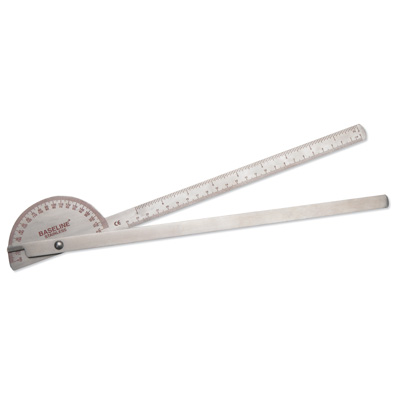A goniometer is a device to measures an angle or allows an object to be rotated to a precise position. In the field of medicine, it is used to measure a range of motion in joints to document injury or healing, such as for occupational or workforce injuries that may qualify for some degree of permanent impairment.
The Conzett goniometer shown here is a common instrument used by disability evaluators:

This device is characterized by the baseline arm being the reference, with the measuring arm swinging through a 180 degree arc. The precise measurement of the resulting angle is displayed on the scale in 1 degree increments. The unique design of the Conzett is in its single motion arm, the 180 degree rotation field, its 14 inch/36 cm length and being manufactured in stainless steel. These instruments are widely used and can be purchased in most medical stores for ~$40.
At this time research has yet to provide the originator of the Conzett goniometer, however several prominent physicians with the name Conzett are known. It is believed to have been invented in the 1900-1940 era.